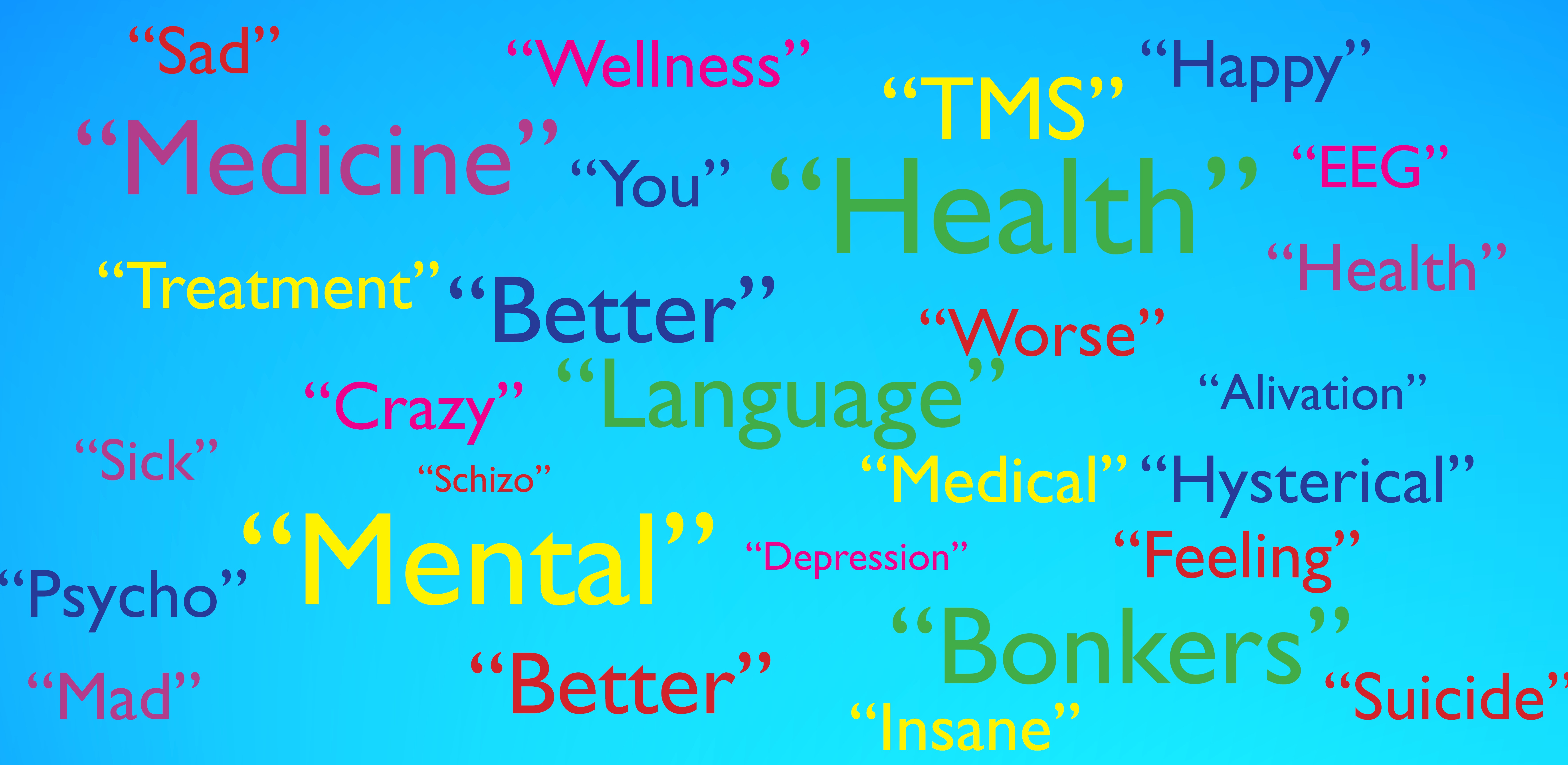Back to School
The Language of Mental Health
People Profile: Nate and Shawn
Working Memory
Celebrating July 4th
Back to School

Tomorrow is August, and that can only mean one thing: it’s back to school season.
Summer flies by fast. It always does. Sunny days and warm weather, cookouts, and fireworks gradually give way to changing leaves, brisk temperatures, and Husker football season. And nestled in that period is August, a time that for decades has seen students of all ages returning to or starting school. Back to school also means back to school athletics, as well as physicals and immunizations. August is even National Immunization Awareness Month (NIAM).
Alivation has a vested interest in back to school month. Aside from many of our team members having children who participate in school and sports, a great many of our patients do, as well. For those concerned parents who want their children to be safer during athletic events, and to help prevent Traumatic Brain Injuries (TBI), August is the time to act, and Alivation is the place to do it. Our EEG and Brain Health Optimization programs help ensure children’s brains are closely monitored. We can even do baseline scanning, where we measure and record the electrical signals in a patient’s brain with an EEG, and then later measure and record it again and compare it after a possible head trauma to gauge the differences.
Many student athletes, their coaches, and parents, are often unaware of TBI and what it can do to children, especially when compounded with multiple traumatic brain events. For those who participate or have relatives and loved ones participate in organized athletics, there are a couple signs and symptoms to watch out for regarding a possible TBI:
- Headaches, or pressure in the head
- Confusion
- Nausea
- Vomiting
- Ringing in ears
- Dizziness
It’s important to be on the lookout for all symptoms, as well as behavioral changes in those with a TBI. It’s equally important to be on the lookout for changes in personality and behavior from children without a TBI event. Mental illness and challenges often rear up during school season, and back to school can be an anxious, depressing time for many students. Being aware of these struggles is vital, and making sure to communicate with kids about the necessity of being open with their feelings and their concerns. Discussion and education are two of the most important weapons we have to combat the ill effects of mental unwellness. With suicide being such a common cause of death among young people, it’s important to be constantly vigilant of behavioral changes, and to provide support when needed.
While mental health is extremely important, physical health is also a necessity. With August being NIAM, taking the time to get your children immunized is always a good idea. With recent outbreaks of measles across the country, it’s doubly important. For those needing back to school checkups and physicals, Alivation’s wonderful Primary Care division is second to none. They can provide physicals, immunizations, and everything else your child may need before returning to school. And for those with mental health challenges or concerns, our brain health division is just upstairs, working perfectly integrated with primary care. If your provider decides a medication would be beneficial to your child, Alivation Pharmacy is just down the hall. All in one for whatever your child needs before returning to school.
Safety and health, both mental and physical, are vital to a good experience for a child. August provides a great opportunity to ensure you and your family are healthy, happy, and ready for the coming semesters ahead, and Alivation is happy to be your provider for these important life events.
Here’s to a great year!
The Language of Mental Health

It’s no secret that the way we phrase things affects how we think of them.
Everything in our language, from official names, terms, nomenclature, slang, to initialisms, helps shape our perception and our thinking around various subjects. When we’re raised in that culture speaking the language, it can be hard to shape and change our perceptions, or to see something in a different, relative light. Language is one of the most important, and it has the ability to inform or confuse, persuade or mislead. Its proper usage is essential. It’s a challenge, certainly, but one we’re always trying to take up at Alivation.
Many patients, especially laypersons not used to medical jargon, can often feel alienated by the word choice and usage providers use casually. Medicine, and especially mental health, are filled with multisyllabic terms, Latin, loan words, and long scientific designations that can make them a linguistic minefield. Even some of the terms we use commonly at Alivation, such as: Electroencephalography, Transcranial Magnetic Stimulation, Autonomic Nervous System Testing, Electromyography, Psychotherapy, Audiometry, and a host of others. You can’t be blamed for having difficulty pronouncing these words, let alone spelling them or understanding exactly what they entail.
Another difficulty we face is slang. Slang is often tied closely with cultural prejudices or preconceived notions. It’s very common to hear words like crazy, insane, nuts, bonkers, and mad used to denote mental health conditions. Throughout most of the 19th century, mad was the blanket diagnosis for anyone experiencing a mental health affliction, or in many cases hysteria, which tended to apply more to women patients specifically, another instance of language and cultural prejudice being closely conjoined. It wasn’t until the mid-20th century when mental health treatment left its infancy and began to adopt new language and new understanding of the myriad illnesses people could have.
But we still deal with it today, in some form or another. The stigma against mental treatment is still strong, and slang terms like crazy or mad are thrown around as blanket catchalls for conditions ranging from depression to schizophrenia. It’s broadly unfair to lump all conditions under the same symptomatic headings, of course, but slang has, historically, been about simplification and ease of understanding. Accuracy and correct scientific categorization isn’t exactly one of the top priorities of slang usage in modern English. That doesn’t mean we can’t help correct it.
Over the past few years, voices in the medical and mental health communities have sought to inform and educate about the way our language colors our perceptions regarding health, and to help others seek treatment through a decrease in alienating language. One of the last strong barriers in the fight against stigma is the recognized use of slang and prejudicial phrasings. It’s hoped that by cleaning that up, and eliminating judgmental terms, we can help more people seek the treatment they need and deserve.
We live by this at Alivation. We try never to use potentially offensive slang terms for mental health, and to encourage everyone to have a greater understanding of the various challenges that come along with these conditions. We believe strongly in ending the stigma, and in correcting the ingrained cultural prejudices against all things mental health. We encourage everyone, as well, to think about their words and language choices regarding medical issues, and to consider what impact they may have on someone seeking treatment. Good communication and understanding are the key. Even our motto, Next Level You, is a phrase specifically designed to inspire hope for those who may feel very little in their daily life. But we chose it for a reason: We believe it. We want you to believe it too, and to believe it’s attainable.
And sometimes it’s all about the words.
People Profile: Nate and Shawn


In any medical organization, the IT (Information Technology) program is a key element.
This program is responsible for the critical systems that support patients and in-house clinical teams. At Alivation, our providers must have access to the information they need, when they need it—and it must always be secure. Time is crucial, and operations need to flow smoothly for the best quality care to be ensured.
At Alivation, we take the job of securing and delivering information quickly seriously. We care greatly about the privacy and confidentiality of all our patients, and we always strive to ensure the best possible experience for them. As a result of our goals, we’ve selected some of the best: Nate, our Chief Information Officer, and Shawn, our Systems Engineer. These are just two members of our great team that manage the Technology Program at Alivation, but their jobs are essential.
Nate holds a Bachelor of Science in Management Information Systems and has been working in technology and management roles for over 15 years before joining Alivation. He’s a mechanical and electronics junkie, and in his spare time enjoys tinkering on Jeeps with his family and friends. He even once pursued a career as a professional motocross racer, but abandoned it after finding another calling for his talents, as well as wanting to avoid the physical injuries that often accompany a motocross life. Most weekends you will find Nate and his family in the garage working on projects, riding motocross, or enjoying the weather on a Jeep outing.
Shawn pursued Construction Management at UNL, and received a Bachelor of Science from the Engineering College. While working as a Project Estimator, he was given the opportunity to tackle some tasks in the company’s IT department, because of a mention of the lifelong enjoyment of technology and computers. He has never looked back. He attended night classes at SCC and picked up an Associate of Applied Science degree in Network Administration. He worked for several large companies in a technical capacity before eventually joining Alivation. When not at Alivation, Shawn enjoys spending time with his wife and kids, as well as photography, painting, running, biking, hiking, building arcade machines and table tennis. You can often find him cruising around town with his family in their topless Jeep, usually on the way to get ice-cream.
On top of managing Alivation’s robust technical infrastructure, Nate and Shawn also handle little tasks that need to be done around the organization as they arise. They handle new team member set ups, manage our secure email filters, and, when needed, maintain the Alivation building. This last task wasn’t officially assigned, it just became a role they slowly owned over the years, based on both their knowledge and skillsets, as well as their interest in all things technical, along with keeping it fun and active. Through their camaraderie, they also won last year’s company costume contest for Halloween, securing first prize as Goose and Maverick from Top Gun. They even went the extra mile and had the movie playing on a loop in their office on a large screen.
For an organization the size of Alivation, patient privacy regulations compliance is essential. Without a great technical department, data can be lost, stolen, or exposed publicly. Lawsuits and damage are a constant worry in the medical industry, along with patient loss due to mismanagement. Everyone deserves a great quality of care, and that includes protecting PHI. Working in conjunction with each other and the rest of the technology and operations departments, Nate and Shawn ensure everything runs smoothly.
We often take our technical infrastructures for granted. We assume things always work because they simply work, our computers are set up where we need them, our internet is connected, our data is safe. We forget that all these things require maintenance, require smooth operation to function as they’re supposed to. IT in a medical environment is no simple task, and it deserves appreciation and acknowledgment. The dedication this team puts forward allows us to support our patients and ensure we deliver Next Level Care.
Working Memory

There is very little that is more important to us than our own memories.
Every time you learn a new skill, or enjoy a nice moment with friends or family, go to a public event or experience a lifetime change, you want, and often need, to remember it. We like our memories vivid when they’re positive, tactile and real. We hold on to them closely, the only things we truly own.
So then, what is working memory?
Working memory is a type of short-term memory. When you need to hold on to information to reuse and manipulate in brief intervals, such as a grocery list, or maybe directions or a phone number, working memory allows you to do that. It’s information that is important to you now, or perhaps in a matter of hours or days, but not decades in the future. You won’t retain it and hold on to it like a cherished memory of a day with your family, but it’s still vitally important to our proper mental functioning. There is a correlation with more abilities, such as performance in school, especially in language processing, mathematics, and science.
In the past few years, there’s been a flurry of interest in the concept of working memory. The first proposal of memory being used in certain storage types was by Atkinson and Shiffrin in 1968. It was called the multi-store model of memory, with information being processed linearly, like in a computer. In their proposed model, memory consisted of three stores: a sensory register, short-term memory, and long-term memory. While the model had many positive aspects and was closer than theories of the past, it was oversimplified.
Enter the Working Model of Memory.
Proposed by Baddeley and Hitch in 1974, the working model demonstrated that short-term memory was more than just a single compartment, and had subtypes of memory and different usages for it within. Different types of information went into different subsystems. The three parts of short-term memory are: Central Executive, which drives the entire system and also deals with cognitive tasks like arithmetic; Visuospatial Sketchpad, which utilizes information in visual or spatial forms, such as navigation; and the Phonological Loop, or spoken and written material—phone numbers and money amounts, for instance.
Working memory has been suggested to be limited in the chunks of information it can contain. Digits, words, letters, bits of data held in the memory depending on their type. And then another theory has argued that there is a capacity limit because different items will interfere with each other in the memory. With many different types of information competing in the same space, it isn’t hard to imagine why this might be so.
One way of preserving decaying memories for longer, especially short-term memories, is maintenance rehearsal. This involves repeating the information mentally, not thinking about it in a more complex way, but just remembering its basic structure and function. There are other ways to remember other types of information and theories regarding it, but it’s a little complex for a single blog.
There are ways to boost your working memory skills. Developing routines, using checklists and breaking large chunks of information into more manageable, smaller bits is a good way to start. You can also use mindfulness or meditation to lessen distractions, and of course add exercise into your day to not only boost memory, but your entire body’s functioning as well. Practice and maintenance rehearsal seem to have great benefits for your memory, especially if done regularly and enough to challenge the brain.
If you have larger concerns about your memory, or want more comprehensive strategies to boost your working memory, call Alivation today. As brain health experts, we can help guide you to Next Level You.
Celebrating July 4th

We love this time of year. How can we not? The sun is out, it’s warm, there are cookouts and picnics and athletic events and summer is in full swing. Fireworks start popping weeks before July 4th, and you can go to the pool and dive into cool water while the sun is high. Burgers and brats are just around the corner, and at night it gets cool enough to sit outside and watch fireworks or listen to crickets and cicadas chirping.
Though it’s a holiday, we can still self-care.
What does this mean?
For many people, holidays can be a stressful time. Not just for planning family events or the shopping list, but for those with mental health challenges. One of the most prevalent groups is, of course, those suffering from post-traumatic stress disorder (PTSD). For veterans, the sounds of fireworks can cause a more difficult time in adjusting to home life, no matter how many years later. This writer remembers his grandfather, who had served in WWII, refusing to ever be around fireworks for the last 70 years of his life. Each pop and boom were a reminder. Each innocent crackle brought back memories of sounds that killed his friends in Europe. He was like this until the day he died in 2012.
It’s a tough challenge: There will always be fireworks. They’ve become as common, and as American, as the metaphorical apple pie. The key is to listen, understand, and help others cope with the way it might make them feel. We can encourage them to get help if they’ve not already done so, and listen to them when they feel like talking, or let them be when they don’t. Be sensitive to the needs and challenges of your veteran neighbors. We don’t always have answers, but we can often help others find them if we do the right thing.
For those with other challenges in their lives, or possibly just looking to cope with the inevitable stress that comes with holidays, there are other ways. Don’t be afraid to indulge a little in the things that make you happy; it’s a holiday, after all. Make plans to do what you enjoy, and to pursue the fun things you want. Spend time with the people in your life you most appreciate, and be open to talking with them about what you’re feeling and what you’d like. It can be casual; just be yourself, and open up when you feel like it. Listen to them when they do the same. Turn it into a conversation. Some more great coping and educational strategies can be found here: https://www.nationaleatingdisorders.org/blog/five-ways-to-self-care-independence-day-weekend
And, of course, celebrate responsibly. Don’t engage in risky or dangerous behaviors to cope with undiagnosed challenges. Don’t tempt death and try to “feel alive” when there are other strategies to deal with your issues. Enjoy your family and your friends, and make peace with what’s bothering you in ways that don’t hurt anyone. If, after this time and some reflection, you feel you aren’t managing in a healthy or beneficial way, give us a call.
This is a great time of year, with many fun possibilities. It’s also an excellent time to renew our mental health lives, and to pursue the things that will make us feel better, our next levels. Celebrate the good things in your life, and ask others how you can help them. Plan a great time, and live life to the fullest. Appreciate what you have and all your vast potential, and the ways others can use their own potential for better things. And don’t be afraid to have one more burger, if that grill is still fired up.
